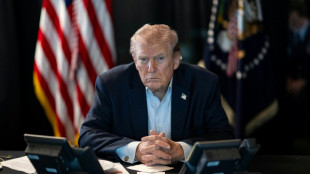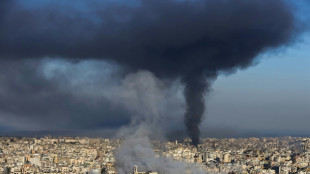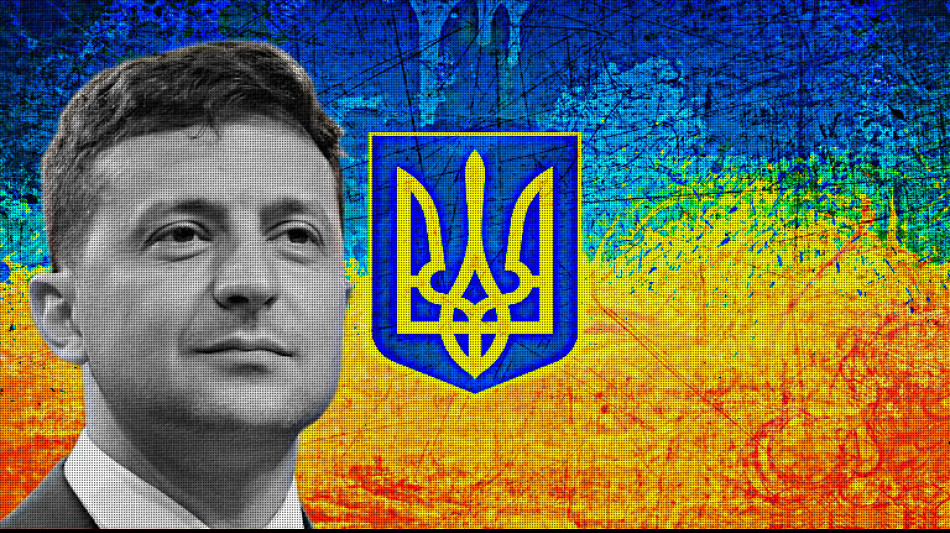-
 Afghans escape from Iranian cities to get home
Afghans escape from Iranian cities to get home
-
'Peaky Blinders' stars hit Brum red carpet for movie premiere

-
 Brazil's Flamengo sack coach Filipe Luis despite 8-0 win
Brazil's Flamengo sack coach Filipe Luis despite 8-0 win
-
England 'not fearing anything' against India, says Curran

-
 Global markets turmoil intensifies on Iran war
Global markets turmoil intensifies on Iran war
-
Iran targets Mideast energy industry and US missions

-
 Rahm accuses DP World Tour of 'extorting players' with LIV deal
Rahm accuses DP World Tour of 'extorting players' with LIV deal
-
Thousands of Afghans displaced by Pakistan conflict

-
 China, North Korea make winning starts at Women's Asian Cup
China, North Korea make winning starts at Women's Asian Cup
-
EU asylum applications down but Iran concerns mount

-
 Rahm accuses DP World Tour of 'exorting players' with LIV deal
Rahm accuses DP World Tour of 'exorting players' with LIV deal
-
Drones hit US embassy as vengeful Iran targets Mideast cities

-
 Mideast war exposes fragile oil, gas dependency
Mideast war exposes fragile oil, gas dependency
-
How the T20 World Cup semi-finalists shape up

-
 Oil extends gains and stocks dive as Middle East war spreads
Oil extends gains and stocks dive as Middle East war spreads
-
Warming El Nino may return later this year: UN

-
 Trump says US-UK relationship 'not like it used to be'
Trump says US-UK relationship 'not like it used to be'
-
Eight years on, trial begins in Argentina submarine implosion

-
 Beijing votes out three generals from political advisory body
Beijing votes out three generals from political advisory body
-
Oil extends gains and stocks dive as Iran conflict spreads

-
 The French village where Ayatollah Khomeini fomented Iran's revolution
The French village where Ayatollah Khomeini fomented Iran's revolution
-
South Africa, India eye T20 World Cup rematch as semi-finals begin

-
 Trump hosts Germany's Merz for talks eclipsed by Mideast war
Trump hosts Germany's Merz for talks eclipsed by Mideast war
-
Second-hand phones surf rising green consumer wave

-
 Pakistanis at remote border describe scramble to leave Iran
Pakistanis at remote border describe scramble to leave Iran
-
China votes to oust three generals from political advisory body

-
 Murray scores 45 as Nuggets hold off Jazz
Murray scores 45 as Nuggets hold off Jazz
-
Five things about the 2026 F1 season

-
 Scrum-half Gibson-Park: Ireland's 'petit general'
Scrum-half Gibson-Park: Ireland's 'petit general'
-
Geopolitical storm leaves isolated Greenlanders hanging by a telecoms thread

-
 Myong hat-trick as North Korea cruise at Women's Asian Cup
Myong hat-trick as North Korea cruise at Women's Asian Cup
-
AI disinformation turns Nepal polls into 'digital battleground'

-
 New Israel, Iran attacks across region: Latest developments in Middle East war
New Israel, Iran attacks across region: Latest developments in Middle East war
-
China's overstretched healthcare looks to AI boom

-
 Oil extends gains and stocks drop as Iran conflict spreads
Oil extends gains and stocks drop as Iran conflict spreads
-
Rituals of resilience: how Afghan women stay sane in their 'cage'

-
 Strait of Hormuz impasse squeezes world shipping
Strait of Hormuz impasse squeezes world shipping
-
Fresh Israel, Iran attacks across region: Latest developments in Middle East war

-
 Oscar-nominated Iranian doc offers different vision of leadership
Oscar-nominated Iranian doc offers different vision of leadership
-
Oscar-nominated docs take on hot-button US social issues

-
 'I couldn't breathe': The dark side of Bolivia's silver boom
'I couldn't breathe': The dark side of Bolivia's silver boom
-
Trump warns of longer Iran war as Riyadh, Beirut hit

-
 Underground party scene: Israelis celebrate Purim in air raid shelters
Underground party scene: Israelis celebrate Purim in air raid shelters
-
Flowers, music, and soldiers at funeral of drug lord

-
 'Safety and wellbeing' will guide F1 Mideast planning: FIA chief
'Safety and wellbeing' will guide F1 Mideast planning: FIA chief
-
Trump to attend White House Correspondents' dinner

-
 Will Iran's missiles drain US interceptor stocks?
Will Iran's missiles drain US interceptor stocks?
-
OMP Unveils Decision-Centric Planning to Accelerate Supply Chain Decision Velocity

-
 Trump warns of longer Iran war as violence spreads
Trump warns of longer Iran war as violence spreads
-
Energy infrastructure emerges as war target, lifting prices

Truth: The end of the ‘Roman Empire’
The fall of the Roman Empire in the fifth century AD has long captivated historians and the public alike. For centuries, scholars have debated the precise causes of the Empire’s decline, offering myriad explanations—ranging from political corruption and economic instability to moral degeneration and barbarian invasions. Yet despite the passage of time and the wealth of research available, there remains no single, universally accepted answer to the question: why did the Roman Empire truly collapse?
A central factor often cited is political fragmentation. As the Empire grew too vast to govern effectively from one centre, Emperor Diocletian introduced the Tetrarchy—a system dividing the realm into eastern and western halves. While initially intended to provide administrative efficiency, this division ultimately paved the way for competing centres of power and weakened the unity that had long defined Roman rule. Frequent changes of leadership and civil wars further sapped the state’s coherence, undermining confidence in the imperial regime.
Economics played an equally crucial role. Burdened by expensive military campaigns to protect ever-extending frontiers, the Empire resorted to debasing its currency, provoking rampant inflation and eroding public trust. The resulting fiscal strains fuelled social unrest, as high taxes weighed heavily upon small farmers and urban dwellers alike. Coupled with declining trade routes and resource depletion, these pressures contributed to a persistent sense of crisis.
Compounding these challenges was the growing threat from beyond Rome’s borders. Germanic tribes such as the Visigoths, Vandals, and Ostrogoths gradually eroded the Western Empire’s defensive capabilities. While earlier Roman armies proved formidable, internal discord had dulled their edge, allowing external forces to breach once-impenetrable frontiers.
Modern historians emphasise that the Empire did not fall solely because of barbarian invasions, moral decay, or fiscal collapse; instead, its downfall was the outcome of a confluence of factors, each interacting with the other. The story of Rome’s fall thus serves as a stark reminder that even the mightiest of civilisations can succumb to the inexorable weight of political, economic, and social upheaval.

How is climate change spreading disease?

Business: Is it important to speak multiple languages?

Trump's return could leave Europe 'on its own'

NASA and Lockheed partner present X-59 Quesst

China: Gigantic LED in a shopping centre

Did you know everything about panda bears?

Ukraine has a future as a glorious heroic state!

To learn: Chinese school bought an Airbus A320

Countries across Europe are tightening security measures

Five elections in 2024 that will shape Europe!

Norway: Russians sceptical about Russia's terror against Ukraine




